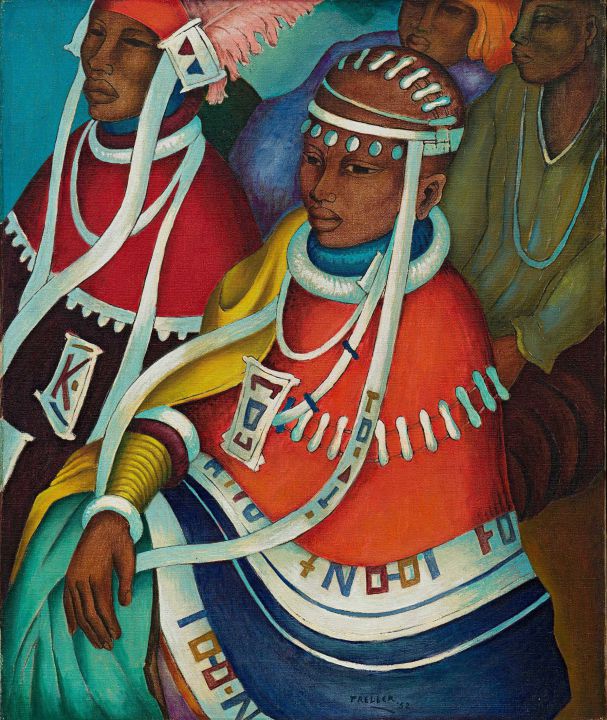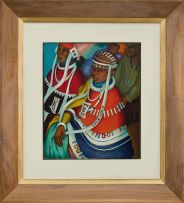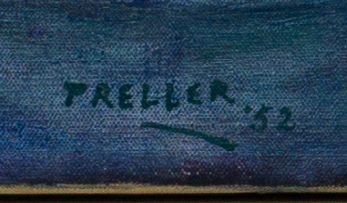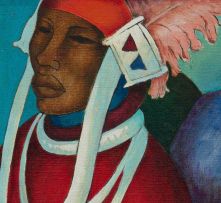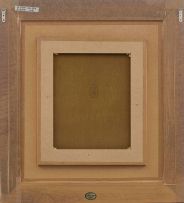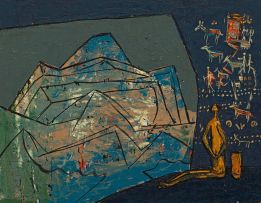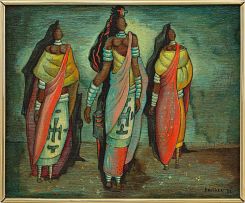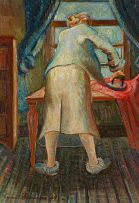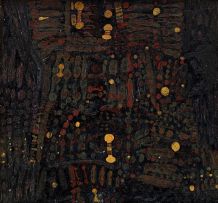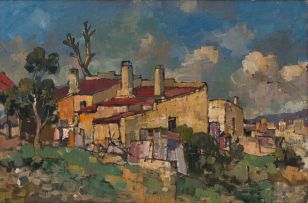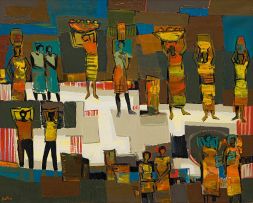Modern, Post War and Contemporary Art
Live Auction, 11 November 2019
Session One
Incl. Buyer's Premium & VAT
About this Item
signed and dated '52
Notes
Mapogga Wedding catches a sanctified moment with a joyous combination of vivid colour and off-beat design. The bride and groom are set slightly askew, their bodies angled diagonally across the composition and edited by the canvas margins. Beautiful, traditional blankets envelop the couple, hanging heavy over bell-top shoulders. Swooping ribbons of colour wrap around the forms, which are adorned with brass rings and ceremonial, beaded headpieces. The symbolic and geometric Ndebele patterns enliven the matrimonial costumes, while a sense of an ancestral presence comes from the two shadowy, blank-staring and Gauguinesque figures in the background. The bride's right hand is poised against swathes of turquoise fabric, and brings to mind the artist's remarkable picture of David (fig 1), with the figure's beautifully rendered hand held up to his chest, that was painted in the same year. Preller's fascination with the Mapogga figure, ritual, design and mythology began in the late 1940s, and remained a key reference point for his complex and ever-evolving iconography. The facial features of this bride and groom, however, are surprisingly particular, and are accentuated with single, sure lines. While they recall the neat, refined and looming head in the foreground of The Kraal (1948), or even the solemn profile of Rima (1952), they are unusual in comparison to the stylised, faceless, elliptical heads that appeared in works such as The Storm (1949, fig 2), Three Women (1952), Vibrating Figure (1952), or any of the famed, regal Grand Mapogga (1951-1957, fig 3).
